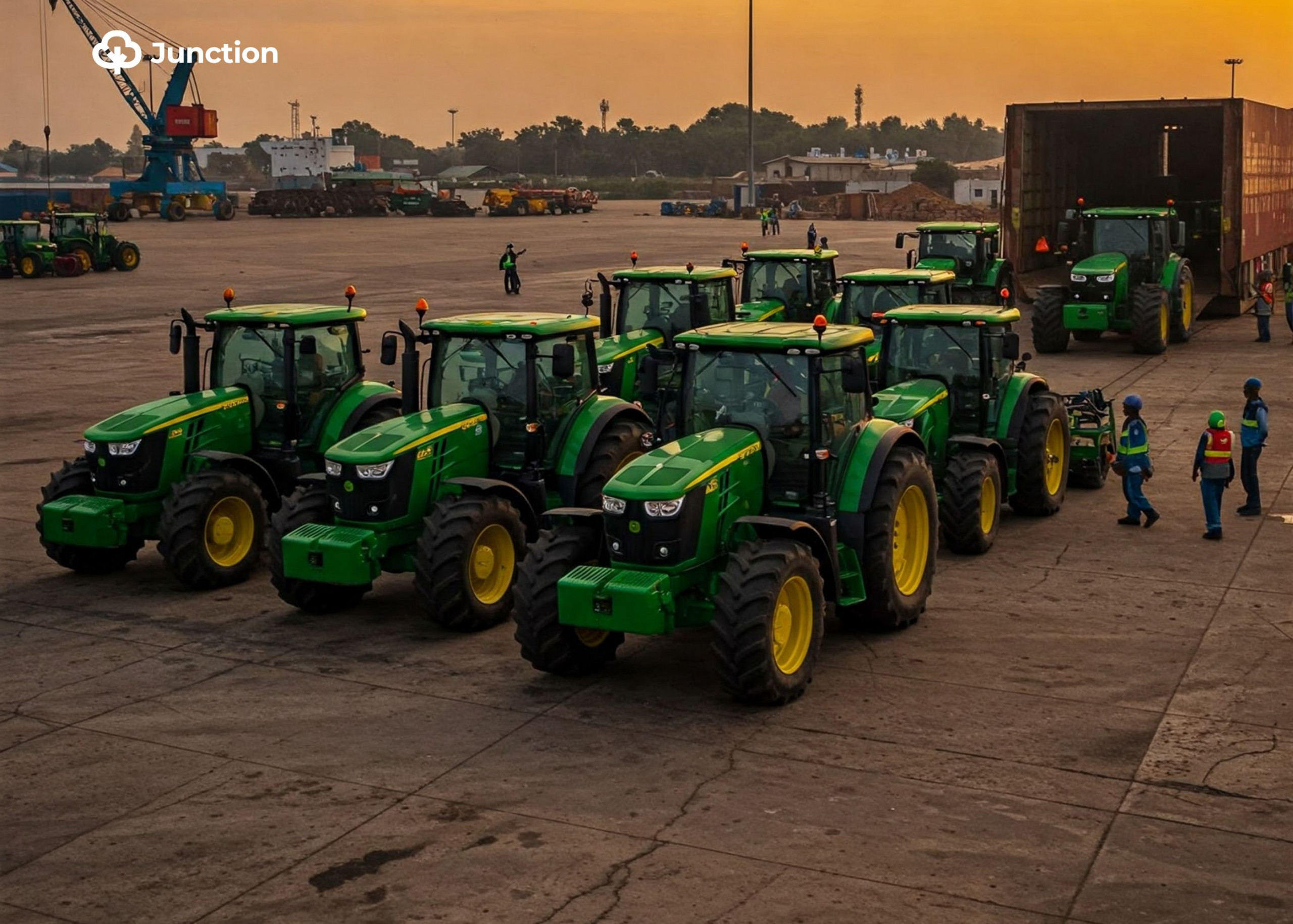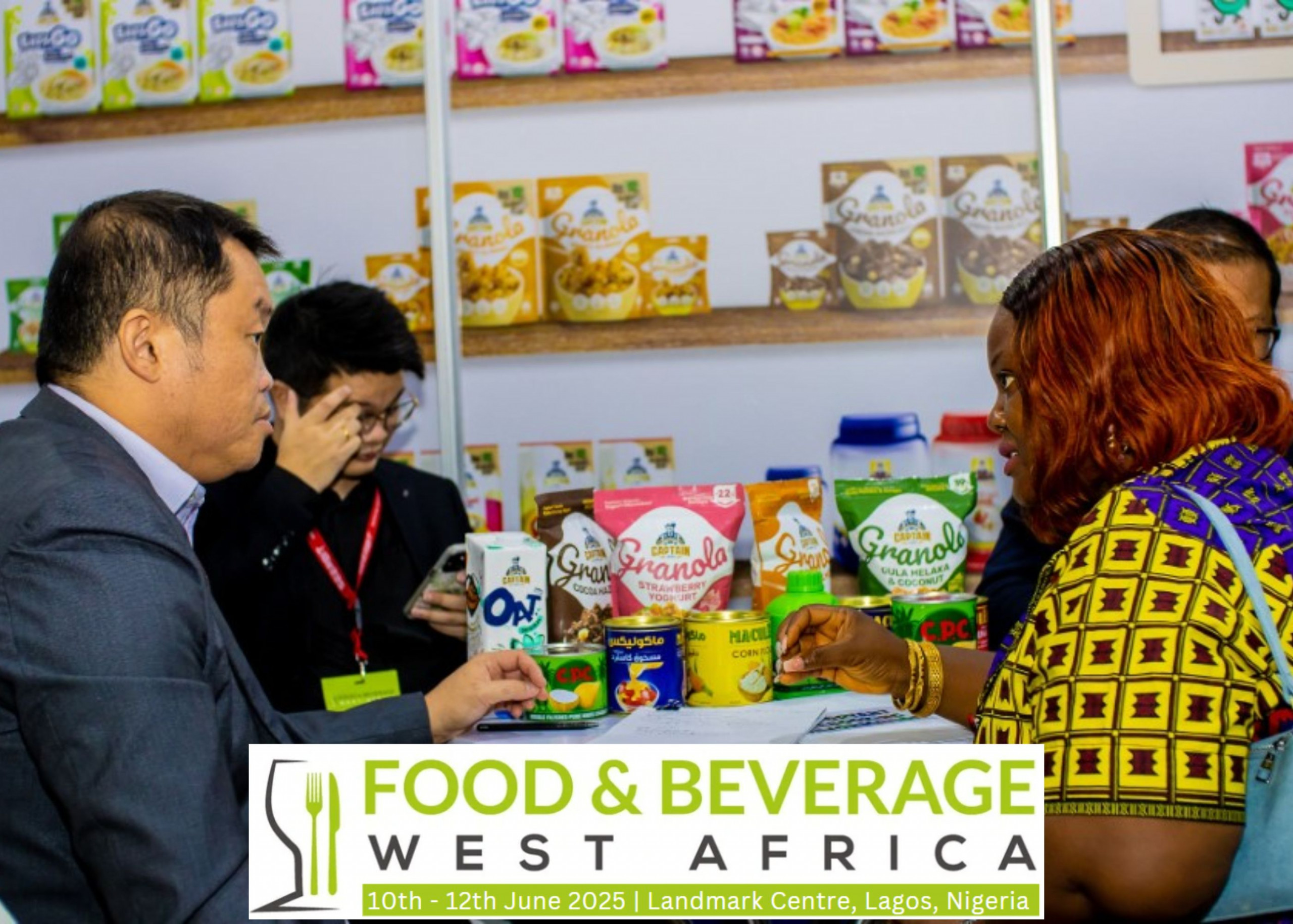Nigeria’s agricultural sector feeds millions and fuels the economy, yet it’s stuck in the past, struggling with outdated tools and limited mechanisation.
In 2025, when artificial intelligence (AI) and robotics are revolutionising different sectors, Nigerian farmers must still manually perform mundane activities like ploughing hectares of farmland because they lack mechanised tools.
With a tractor density estimated at 0.27 horsepower per hectare (hp/hectare), far below the Food and Agriculture Organisation (FAO) recommended tractor density of 1.5 hp/hectare, Nigerian farmers currently face a mechanisation problem. For every 10,000 hectares of arable land in Nigeria, farmers have access to only 6 tractors.
Further underscoring the abysmally low mechanisation in Nigerian agriculture is its current rank of 132nd out of 188 countries with the most tractors worldwide.
During the 2025 Future of Agriculture Conference, Godson Ohuruogu, the CEO of Trac Trac Mechanised Services Limited, appealed for collaboration between the public and private sectors on farm equipment imports to ease farmers’ burden and boost productivity.
David Shekari, the Managing Director of Askrama Trading Company, a licensed customs clearing and logistics firm, confirmed the ordeal in this industry.
“The cost of importation is killing us,” he said.
This statement led to a deeper conversation after the event, where he shared just how dire things have become.
Importing a single second-hand tractor now costs nearly ₦20 million. Our conversation, supported by further research, answers the question: Why have efforts to mechanise agriculture in Nigeria remained slow and difficult?
The real cost of importing a tractor into Nigeria in 2025
According to Shekari, a client recently purchased a used tractor from Pakistan for $35,000 (₦56.4 million). However, that was just the starting point. The logistics and compliance costs are staggering:
- Pre-shipment documentation: ₦9.6 million (includes SON permits, NESREA certification, FX documentation, and insurance).
- Customs processing (duty-free on paper): ₦4.5 million.
- Transportation from Lagos to Calabar: ₦ 3.5 million.
- Terminal and shipping line charges: Variable and dependent on port, tonnage, and shipping line.
Cumulatively, importing just one second-hand tractor (without the purchase cost) can cost ₦15 million to ₦20 million, a price tag that’s out of reach for most Nigerian farmers.
This is consistent with findings from The Guardian Nigeria, which reported that clearing a container of tractors has spiked from ₦2 million to ₦15 million in just two years.
Why is it so expensive to import tractors in Nigeria?
- Exchange Rate Crisis: The naira’s devaluation has been devastating. At an exchange rate exceeding ₦1,500 to $1, the dollar cost of equipment translates into a financial burden too heavy for average farmers or Small and medium-sized enterprises (SMEs).
- Hidden Costs Despite Duty-Free Policies: Although agricultural equipment is theoretically duty-free, importers still face costs for clearing, storage, documentation, and port handling. Shekari confirms that customs still charge for “parts” even when duties are waived.
- Infrastructure and Logistics Bottlenecks: Transporting a container from Lagos to Calabar now costs ₦3.5 million due to fuel prices, bad roads, and poor rail infrastructure. Terminal delays and network failures also add to the inefficiency.
- Corruption and Manual Bureaucracy: Despite efforts like Nigeria Customs’ new e-clearance system, known as B’Odogwu, Shekari notes that corruption at the ports, manual documentation, and weak broadband continue to delay processes and inflate costs.
One might ask, can local manufacturing not reduce the cost associated with imports? True, it can. However, Nigeria lacks a functional steel industry needed to manufacture tractors locally.
“If we had even basic steel, we could assemble simple tractors ourselves,” Shekari argues.
Until initiatives like the John Deere deal to assemble tractors locally start to yield results, Nigeria remains dependent on imports.
A community-based solution to high tractor importation costs
While importation remains costly, farming communities and cooperatives can adopt innovative financial models to ease the burden. One such approach is for cooperatives to pool funds together to help a member who has imported agricultural equipment clear it through Nigerian ports.
In this arrangement, the equipment owner agrees to make the equipment available to cooperative members at a discounted rental rate. This ensures the financial contribution from other members translates into real, shared benefits. By spreading the logistics and compliance costs across multiple farmers, everyone gains access to mechanised farming without bearing the full burden of importation alone.
This model promotes collaboration, reduces individual financial risk, and creates a shared asset within communities, helping bridge the mechanisation gap one tractor at a time.
Another model that could improve mechanisation is argued for in this article. Mediumholder farmers are uniquely positioned to accelerate mechanisation for smallholder farmers, who often rely on manual labour due to limited access to equipment and capital. With their growing ambition to evolve into integrated agribusinesses, many mediumholders possess both the technical savvy and business mindset needed to scale modern practices. Their investment in tractors, planters, harvesters, and irrigation systems can be shared or rented out to smallholders through cooperative models, local service centres, or informal leasing arrangements. This improves productivity for smallholders and creates a new revenue stream for mediumholders, making it a win-win model for sustainable growth.
Mediumholders are especially effective as catalysts for mechanisation because of their deep integration into the same rural communities and institutions as smallholders. They speak the same language—both literally and economically—which fosters trust and cooperation. Evidence from Tanzania shows that smallholder mechanisation increased sevenfold in regions with strong mediumholder presence, underscoring the powerful ripple effect of this synergy.
Policy recommendations to encourage tractor imports
- Stabilise the Naira: Encourage policies that strengthen the local currency to reduce import costs.
- Fully Automate Port Processes: Expand the B’Odogwu system and ensure all trade agencies, Customs, SON, NESREA, NAFDAC, operate on a centralised digital platform.
- Revive the Local Steel Industry: Investing in Nigeria’s steel and allied industries, like the Ajaokuta Steel Project, will support future domestic tractor production.
- Tackle Insecurity and Poor Infrastructure: Improve roads, rails, and safety so agricultural goods and machinery can move efficiently across the country.
- Support Cooperative Import Models: While import costs are calculated per item, farmer cooperatives can pool resources for better financial resilience and equipment sharing.
Mechanisation is the future, but at what cost?
Until Nigeria addresses the fundamental economic and structural challenges outlined above, agriculture will remain labour-intensive, inefficient, and unappealing to the youth.
As Shekari rightly said, “Farming is profitable, but the government must remove the roadblocks.”
It’s time to move beyond rhetoric. The cost of inaction is far greater than the cost of a tractor.



